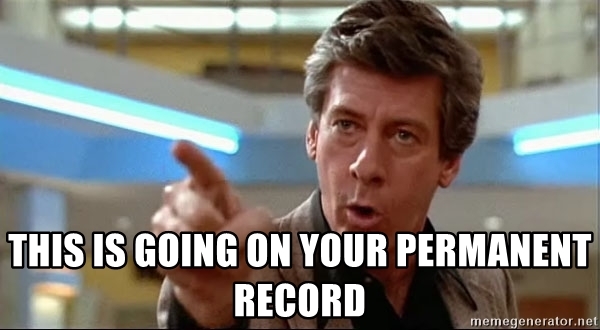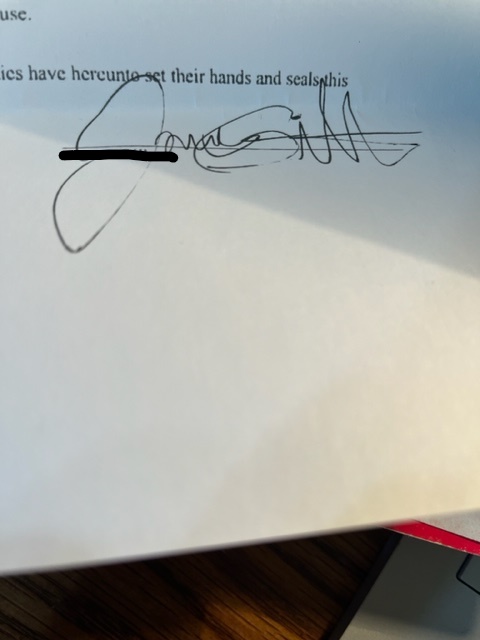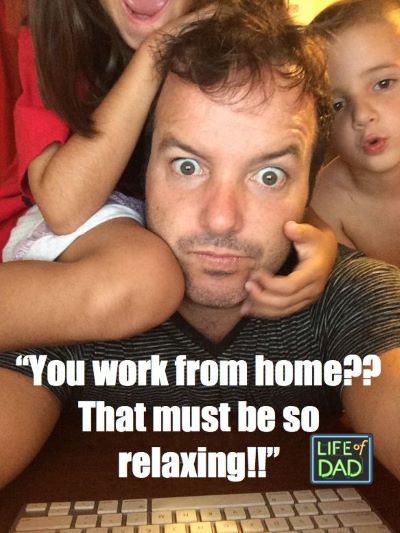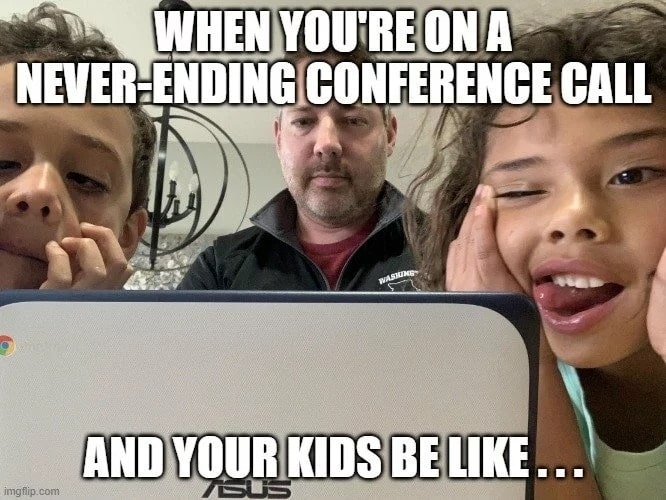The phrase, “It’s lonely at the top”, is commonly thrown around by anyone in an elite or “top tier” leadership position. Professional athletes, celebrities, church leaders, school administrators, CEO’s, and those who lead organizations worldwide are all familiar with the phrase. While it may seem cliché, the reality is that the higher you climb on any organization’s ladder, the fewer peers that you have, and typically the more responsibility that you shoulder. When I was in my Master’s program for Educational Leadership, every professor that I had (all of them former superintendents and principals), told me that “Leadership is lonely”. They all claimed that to withstand the pressure I should find mentors and peers that I could trust and lean on. They all reminded us that there is only one principal in the building or superintendent in the district and it’s difficult (and very solitary) when you feel like there’s no one to share your struggles or celebrations with. Jane Sigford writes extensively about this concept in her book, Who Said School Administration Would Be Fun? Coping With a New Social and Emotional Reality. In fact, one professor of School Finance advised me and my classmates that the best method to deal with needing someone to trust and lean on as a leader was to “get a dog or a cat. Someone who will love you no matter what decisions you make and who you can endlessly vent to and that you can trust will NEVER tell anyone. Because they can’t talk. I don’t recommend a parrot because that isn’t a 100% guarantee with them.” I often wonder what sort of bird betrayed his trust that he felt that he needed to clarify.
Then, I was still in the classroom and although I understood what he was getting at, I couldn’t truly understand what he meant. I learned his true meaning firsthand a couple of years later as a first-year assistant principal when I was crying all alone in my office at 6 PM on the day. That evening, I had just signed my first recommendation for expulsion paperwork. That was the first moment that I truly felt the weight of his words deep in my bones. You can be an armchair administrator all day long as a teacher. You can second guess and question or even disagree with your principal or assistant principal’s decisions all day long – but you can NEVER feel the weight of them until it’s YOUR signature on the paperwork or your own personal responsibility to make an impossible call. Whether you’re dismissing an employee, handing a child over to Child Protective Services to be removed from their home, recommending expulsion for a 13 year old, or calling a Snow Day – when you know going into a decision that it won’t be respected, liked, or agreed with, and you don’t even know for sure whether or not it’s the right call – you feel an emotional weight that you simply can’t and won’t ever understand as a teacher. Knowing that the trajectory of an employee’s career or a child’s life will be potentially irreversibly impacted by your decision/action is a burden to bear. You have to trust your knowledge, context, gut, and legal counsel and despite everyone’s feedback stick to what you know is right despite praise or criticism. There is a large body of research on the negative implications of suspension from school on students (especially male students and African American students). One study by Lacoe and Steinberg, summarizes all of the negative outcomes on students that have been suspended from school. They state the following:
“We find some evidence that each additional day of suspension for classroom disorder infractions decreases test scores, with estimates ranging from a statistically insignificant −0.01 (based on the fixed effects model) to −0.06 standard deviations in both math and ELA, based on the IV models (Table 4, Panel A). These effects appear to be concentrated among middle-school students (Table 4, Panel C), where each additional day of classroom disorder OSS decreases test scores by 0.07 standard deviations.”
Lacoe, J., & Steinberg, M. P. (2019). Do Suspensions Affect Student Outcomes? Educational Evaluation and Policy Analysis, 41(1), 34–62. https://doi.org/10.3102/0162373718794897
Every time I sign a middle school students’ suspension paperwork I consider how I am impacting their life and what the cost-benefit analysis is for the learner vs. the learning community. It’s not a concept that the teacher has to attach their signature to at the end of the day even if the infraction occurred in their classroom – even if the child was wildly disrespectful to them – or if the kid just really gets on their nerves. It’s not a part of my job that I take lightly. And I have to trust myself when I’m making that call and I have to accept the blow back if my decision is criticized by the parent or teacher; and I have to carry the weight. The classroom teacher doesn’t – at least not in the same way. I know because I was once a classroom teacher who had kids who misbehaved in my classroom. And someone I was glad when they were “finally suspended”. Even though I knew suspension was serious I wasn’t weighing the full cost-benefit analysis to the students’ entire life – I was thinking of the impact on my classroom community.
School leaders’ role in making weighty decisions are a shared professional experience. With that being said; you’d think that leaders could at least rely on one another for support when it’s needed. To a certain extent that’s true. I rely on the moral support that I get from Twitter, LinkedIn, and Facebook leadership groups often. I enjoy the networking, the advice, and the helpful tips that my skilled and respected colleagues have to share. I have always firmly believed that if people pool their resources and share the combined wealth of their knowledge; all can benefit. I turned to those groups heavily during the beginning of the COVID-19 pandemic as a leader in totally uncharted waters. On March 13, 2020 my district’s superintendent and Teacher’s Union President toured all the schools to make the announcement that the following day would likely be our final day of in-person learning. Teachers were told to say goodbye to their students with the understanding that they likely would not see them in person again that year. Everyone was told to bring all of their belongings home and to prepare for remote learning for potentially the rest of the school year. Once the governor declared the State of Emergency the following day, it was determined that no one was to report to the school buildings in person (including administrators).
In my district, all work by all employees was remote until July 1, 2020. Beginning on July 1, administrators, lunchroom staff, and 2 secretaries per building were mandated to return to the schools in person. While there, their responsibilities were to oversee food distribution to needy families and to supervise remote summer school classes while planning for the start of the next (remote) school year. All of us were working grueling hours (albeit it from home from March-July). Vacation days were cancelled or weren’t approved. No one had any rest. The kinds of stressful decisions being made about how we would organize any sort of remote/hybrid learning for the fall; how to staff our buildings; and the myriad of other decisions that needed to be made kept us on zoom from 7am-at least 6:30PM 5-6 days a week. I still have a screen shot of a meeting that I was in that lasted well past 9 PM on a Thursday evening. Saying that it was hard on all of us is a gross understatement. All 3 of these pictures were taken on the same day (From left to right 11 am, 4 PM, 8:45 PM)
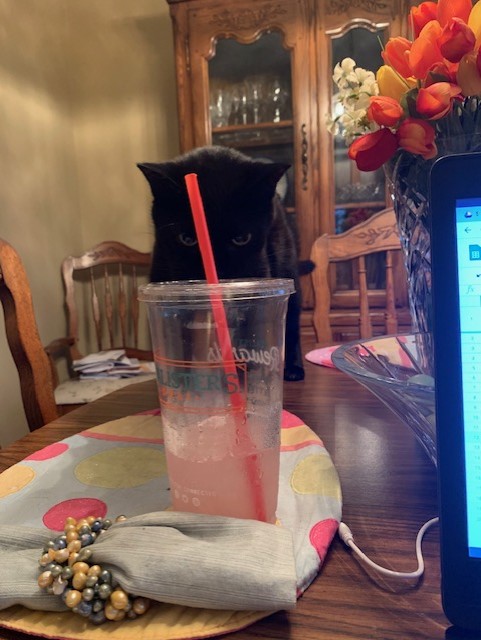
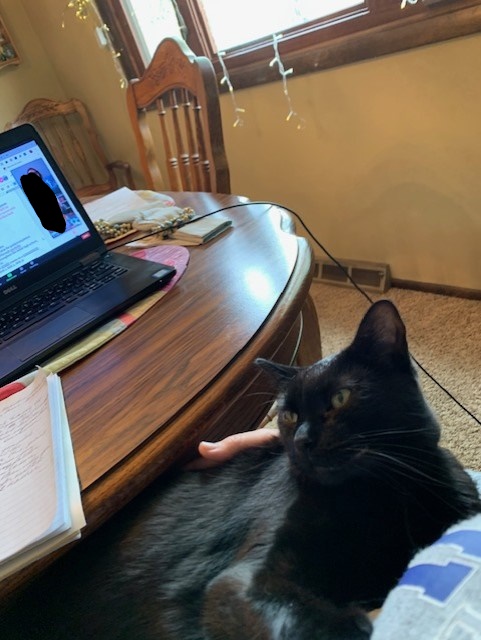
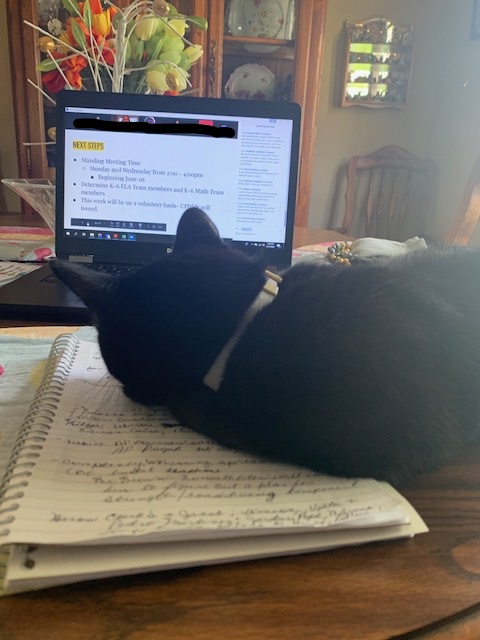
To put my own experience in perspective, I was living alone (with my 2 kitties); going through a divorce from a man who had cheated on me and stolen upwards of $100,000 from me, and was in a highly toxic, defeating, and punitive work environment. I had just started considering dating again when the whole world shut down and there was simply no where to go, and meeting people seemed even more risky and dangerous than before the pandemic. I was socially isolated from friends, family, and coworkers. I was certainly feeling overwhelmed and stressed from work – but I was also experiencing a very deep loneliness that was beyond the typical “leadership loneliness” that any school administrator eventually grows accustomed to. So like many of my peers, I turned to my digital support system.
I suppose I didn’t know what sort of solace I was hoping to find in my networking groups. But instead of comfort, I actually felt stark alienation from the very group of people that I had come to trust and rely on when I was feeling professionally burdened. I was serving as a high school assistant principal (in a building without a principal or even an interim principal), during a global pandemic. It was definitely not a welcoming or a healthy workplace before the pandemic – but COVID exponentially exacerbated the negativity and toxicity. As I scrolled through Facebook and Twitter groups of school administrators (all just as stressed and overwhelmed and emotional as I was), I actually began to feel a whole new level of anxiety and even jealousy.
While I can certainly IMAGINE that being in the house 24/7 with children and pets and working from home was probably stressful for a lot of families – it broke my heart to read complaint after complaint about “I can’t take being in the house with these kids/my husband/these dogs”. Even in my fellow school administrator groups, it seemed like everyone had nothing but negative things to say about being “stuck” with their loved ones 24/7. For those of us who were ALSO leading a school through an impossibly stressful time, but were ALSO doing it totally ALONE with no one (in person) to support us – it almost felt like a slap in the face. I felt angry and isolated. How dare these people that were so blessed to have children or a spouse (something I had been robbed of and wouldn’t get to have) be complaining about the sound of happy laughter coming from their basement? Didn’t they know that some of us would have KILLED for their “problems”? If only I could have had someone right there to hug me after an awful and frustrating work call that lasted until 9PM! While it is always easy to fall into the “grass is always greener” trap of comparing one’s life to other people’s – it was especially hard for me to keep those feelings in check in late 2020.
When I got my signed divorce papers in the mail I didn’t know what they were. It was just a plain envelope from my lawyer’s office. Since my ex-husband had been institutionalized, hadn’t hired a lawyer, and had hid from me and the entire process – I hadn’t received any updates on the ongoing progress of my case in months. Honestly, I remember running to the mailbox when I heard the mail carrier (because some days he was my only human interaction and I’d gotten into the habit of waving at him and saying hi from behind the glass). I recall grabbing the envelope out of the mailbox and expecting it to include a bill for some additional hours related to the marshals that were needed to locate my ex-husband when he hid and failed to appear in court the previous November. There are just some memories that you just FEEL deep inside of your bones even years later. (Where you were when the moon landing or 9/11 happened, where you were when your parent passed away, the smell of your house on Christmas morning, etc.) For me, opening that envelope on April 8, 2020 is one of those moments forever both frozen in time and viscerally reexperienced as a full body memory anytime it’s mentioned. I was standing in the front hallway of my house and tearing open the envelope while the smell of brewing coffee wafted in from the kitchen. The house was silent other than the Keurig bubbling in the next room. A single-spaced letter on my lawyer’s letterhead simply stated:
“Dear Jennifer, Enclosed please find a copy of your Decree of Dissolution and Property Settlement Agreement which was signed by the Judge. As of the 6th day of April 2020, you were officially returned to the status of a single person. If you have any questions please contact my office at your convenience.”
And that was it. It took me less than 5 seconds to read. I dropped to the floor like a bag of cement (my right knee cracked) and sat down like a kindergartener with my legs crossed right there in my front hallway. My hands shook and I turned to the back page. I don’t know what I was expecting to see there. For more than 20 years I had seen my husband’s name signed on a variety of documents. His gorgeous penmanship had always impressed me. He was left handed but ambidextrous. His perfect Palmer method cursive was always gorgeous and identical regardless of which hand he had used. When I saw his signature on our divorce decree I choked and cried uncontrollable tears of rage and sadness. I had never before and have never since felt more lonely in my entire life (including the period after my college house fire I mentioned in a previous post). His signature was sloppy and careless and not his usual gorgeous handwriting. He hadn’t even cared about me or what he’d done to me in the past several months to take the time to write his name properly for the court. I had had no warning that these papers were coming. I was alone at home during the height of the uncertainty of the pandemic. And every school leader that I had come to rely on for support in my loneliest moment – was griping and complaining about being home with their loved ones while I cried in an empty house. As a leader and as a human being – I had never felt so alone and insignificant in the universe.
I thought that certainly there were others like me out there but maybe they had also been quiet in the digital world. In a school leadership Facebook group that I had long been a member of – I took a big vulnerable risk and made a long post. I basically asked the question: “Is there anyone else out there doing this right now – ALL of this – but is also doing it completely alone? Is there anyone else out there conflicted and angry by seeing people with spouses & families – that are blessed to have them – and feeling isolated and pissed off when they see all these people complaining? Is there anyone out there AT ALL who is seeing the “get out of my home office kids!” with the adorable pictures of kids on their parents’ laps and is feeling incredibly jealous?” “Is there anyone else out there pissed off and TOTALLY alone?” And initially, I was overwhelmingly “supported”. People patted me on the back for running a school without a principal or district support; people praised me for being brave and facing a divorce alone; several people that also lived alone offered some encouraging words. However, much of the support offered also felt like backhanded compliments or even “leadership critiques”. Several people offered me support “but you should cut people slack for complaining about how difficult it is to work from home with kids”, or “you’re doing a great job and I’m sure it’s hard but have you considered counseling” (I was seeing a crisis counselor already). Or my personal favorite, “It must be hard to see all those posts but don’t forget that this is hard for everyone – even those who have 3 kids, 2 dogs, a cat, and a husband to keep them company!” All I was seeking was maybe a little bit of empathy and I was pleading with my support system to maybe consider how great they just may have it. A simple request to maybe consider the diversity of their audience before posting complaints, especially when some of that audience didn’t have the added “burden” (or as I viewed it – a blessing) of GETTING to do any of this with the ones they loved. Maybe it was simple jealousy. And maybe it was because I had turned to school leaders for support.
Leaders LOVE to offer advice. They get paid to solve complex problems and mentor people. They ask you if you’ve “considered all of the stakeholders viewpoints”, or if you “asked the right people for feedback.” And in a Building Leadership Team meeting or a parent conference, or any other WIDE variety of scenarios that would 100% be the correct response (and welcomed by any good leader). But in reality, all I had wanted was a “wow I didn’t realize there may be people out there feeling this way. I validate your feelings. I feel really blessed to tuck my kids in at night. I’m here for you if you want to talk or scream or yell or throw things.” Sometimes all people need is an ear to listen without being offered a toolkit for addressing their feelings. In the years since, I have consciously tried to become the empathetic listener that I had needed to break my loneliness on April 8, 2020. I have made a concerted effort when colleagues or friends have started venting about something to ask the question, “before we go on, do you just want me to listen, or would you like advice, or a combination of both?’ Or I say nothing at all and let them finish and then say “How would you like me to support you?” One person from that Facebook direct messaged me with the very simple message, “I can’t believe how hard what you’re going though must be without anyone else in your home to share it with. How can I support you?” Honestly their message just made me feel seen and heard. We had a good conversation about what loneliness really is and compared ways that we’d each dealt with it in the past. It felt 1000% times better than any of the “pity” or the “backhanded advice” I had received from anyone else. I left that group because eventually it got exhausting to reexplain my feelings or my situation to so many different people as new people came across the post and would comment. Sometimes you have to stitch the wound and let it heal and not keep tearing it open.
My experience is sort of an example of what happened to the personal and professional worlds during the height of the pandemic. Everything felt squished together in a way that it hadn’t been previously. When people left work, they left work and family time was family time. Home was home and work was work. (One can argue that the last 10 years’ worth of technology had already been blurring these lines – and one would be correct – but COVID and remote work cemented the deal.) I think that if I had been a member of a parents’ Facebook group the expectation of people discussing their family issues would’ve been more predictable – but I was in a group about leading schools. As school leaders were working from home and the lines became more and more blurred, it makes sense that the venue had a lot of cross over. Upon reflection, I can’t blame my peers for looking for solace the same way that I had been. It isn’t that surprising that their personal worlds were colliding with their professional ones and creating a whole different and new category of frustrations. We were in the same storm but we all had different boats. In the middle of a hurricane, whether in a cruise ship, a yacht, a pontoon, or a dingy – the storm is scary and it sucks. The stress on school leaders has increased to the point of crisis levels. Per an article in Education Weekly, “The Center for Creative Leadership found that, “Eighty-eight percent of leaders report that work is a primary source of stress in their lives and that having a leadership role increases the level of stress. More than 60 percent of surveyed leaders cite their organizations as failing to provide them with the tools they need to manage stress.”” We were all paddling wildly in that storm from our respective boats – but some of them were more seaworthy than others.
It is NEVER a popular move for a person with no children to tell people with children not to complain. (So stop reading now if you’re about to get offended) But nonetheless it is VERY difficult when you’re completely isolated, mourning the children you’ll never have from a marriage that unceremoniously ended after a couple of months, while also leading a school alone through uncharted waters, to empathize with someone “complaining” about getting to spend time with their adorable toddler who woke them up at 5 am. Maybe it was just petty envy, but it was a hard pill for me to swallow at the time. Even years before my marriage blew up, it always sort of irked me on Daylight Savings time when I had friends and colleagues complaining about their kids or pets “getting them up an hour early because of the time-change.”
For example, I have a high-school acquaintance who struggled with fertility. She had her sons at 38 and 40 after years of heartache and disappointment. Prior to her sons being born, all she could talk about was how badly she wanted children. Then she had them. And ever since then (but especially during the pandemic), she has frequently complained about how “mom tired” she is, how early her kids get her up on the weekends (she’s always loved to sleep until early afternoon), and is a prime “daylight saving time” griper. In April of 2020 when it came across my timeline (fresh off that crushing divorce paper delivery), I simply commented “maybe you should phrase your fatigue as a scenario where you GET an EXTRA hour with the children you so desperately wanted, while those of us without them to hug right now might be feeling an extra hour of absence or even envy or loneliness.” (Let that hypocrisy flag fly there as I did exactly what I was complaining that my colleagues had done to me when they asked me to consider my stakeholders lol) I am normally a champion of being grateful. Most of my life I have been grateful for everything that I have and have always tried to squash any tempting “the grass is greener” feelings. Most of the time I am a happy, content, peaceful, and relatively zen person. But April of 2020 wasn’t one of my finer moments. Whether it is fair or not, I do somewhat still internally judge parents who are always complaining about their kids. I 100% identify that I can’t relate to their personal family dynamics and the challenges their children pose. But I’ve learned how to accept my own personal reality and celebrate what I have rather than mourn what I don’t since then. I do however, feel like 100% of all people can empathize with loneliness.
In the time since April of 2020 my life has been completely transformed. I have a great job in a place that is supportive and healthy and non-toxic. I have a great and happy and functional relationship. I have a supportive and high quality (albeit it small and tight) social circle. My work-life balance is decent (although during teacher evaluation season it is less awesome). I don’t look back on that time with regret or anger or sadness. Instead, I prefer to think about the insight I gained on listening and empathy that I now have as a result of that period of my life. While I didn’t know it at the time, my being vulnerable, reaching out, and not quite getting what I needed was a great training exercise for me to become a better listener and communicator. It will always be like poking a scab for me to remember the way that I felt opening that envelope in my hallway all alone. But it’s a nice point of comparison when I think about where I am in my life right now and all of the wonderful colleagues, friends, and loved ones that I choose to surround myself with now. By learning what I needed in and from a support system – I feel like I was able to (painfully) grow and become a more supportive person myself. I would like to believe that being an empathetic listener who isn’t “leading” or “advising” all of the time makes me a better partner, friend, and leader for others.


